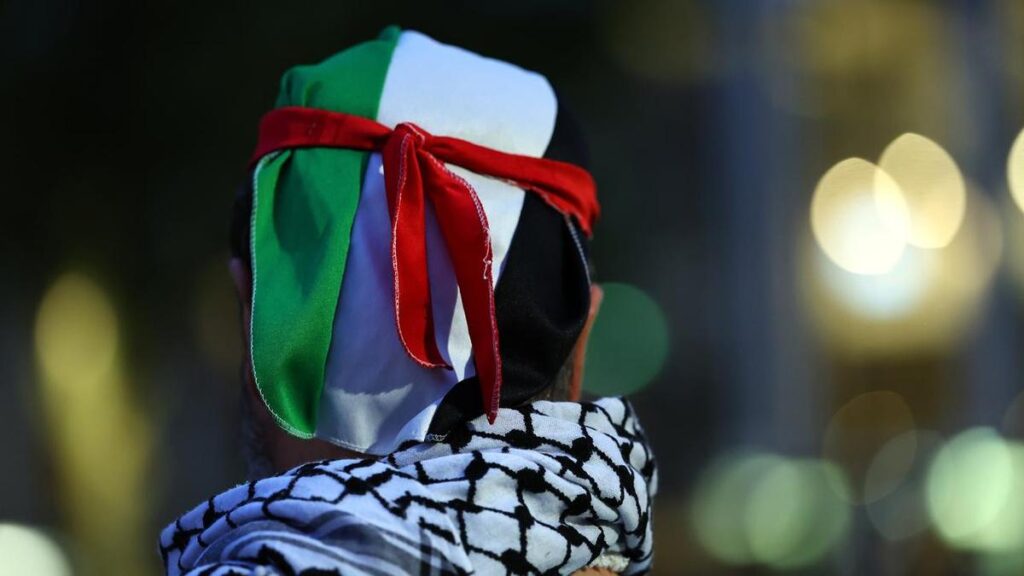
UPDATE: Four Australian activists detained by Israeli forces after a dramatic attempt to deliver aid to Gaza are set to return home this week, igniting urgent calls for government action. Juliet Lamont, Hamish Paterson, and Abubakir Rafiq are expected to land in Sydney on Friday, while Bianca Webb-Pullman will touch down in Melbourne. Their arrival follows a harrowing month at sea with the Global Sumud Flotilla.
After their ships were intercepted off the coast of Gaza, the group faced detention in Israel, where they reported being assaulted and threatened before being deported to Jordan. The activists’ ordeal is drawing significant attention to the ongoing humanitarian crisis in Gaza.
Bianca Webb-Pullman‘s mother, Julie Webb-Pullman, expressed her relief and concern, stating, “On the one hand, she’s happy for herself to be free, but on the other hand, it’s a very limited happiness.” She highlighted that her daughter remains deeply troubled by the situation in Palestine, vowing to continue the fight for freedom.
Julie Webb-Pullman is now urging the Australian government to impose sanctions and sever ties with Israel until it adheres to international law. “It is absolutely shameful that these civilians have had to do what our government should have done,” she declared, emphasizing the need for tangible governmental action.
The Maritime Union of Australia, which includes fellow flotilla participant Paterson, has echoed these sentiments. Deputy National Secretary Warren Smith stated, “Our attention must refocus on the ongoing atrocities occurring in Gaza and on a lasting peace and justice for the Palestinian people.” The union is facing internal pressure to emulate their Italian counterparts, who initiated a nationwide strike on ports to halt arms shipments to Israel.
In response to the activists’ experiences, Smith called on the government to cease any arms trade with Israel. “If wharfies knew they were handling arms bound for Israel … they wouldn’t touch them,” he asserted, reflecting the growing sentiment among workers regarding the ethical implications of their roles in the supply chain.
Despite the federal government’s claim that it has not exported weapons or military parts to Israel since October 2023, Australia remains a part of the global supply chain for arms, including F-35 fighter jets accessed by Israel. This connection raises further concerns about Australia’s role in the ongoing conflict.
The activism surrounding the flotilla has intensified as Israel and the designated terror group Hamas recently agreed to a ceasefire and hostage deal as part of a broader plan proposed by US President Donald Trump to end violence in Gaza. As the activists return home, the spotlight remains on the humanitarian crisis and the need for international accountability.
As the situation develops, all eyes will be on the Australian government’s next steps and the potential for significant policy changes regarding its relationship with Israel. The activists’ experiences serve as a powerful reminder of the human cost of the ongoing conflict and the urgent need for global action.






